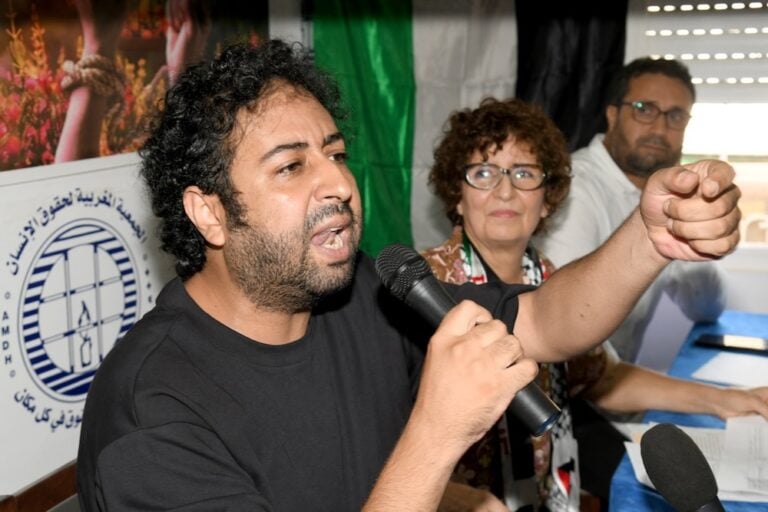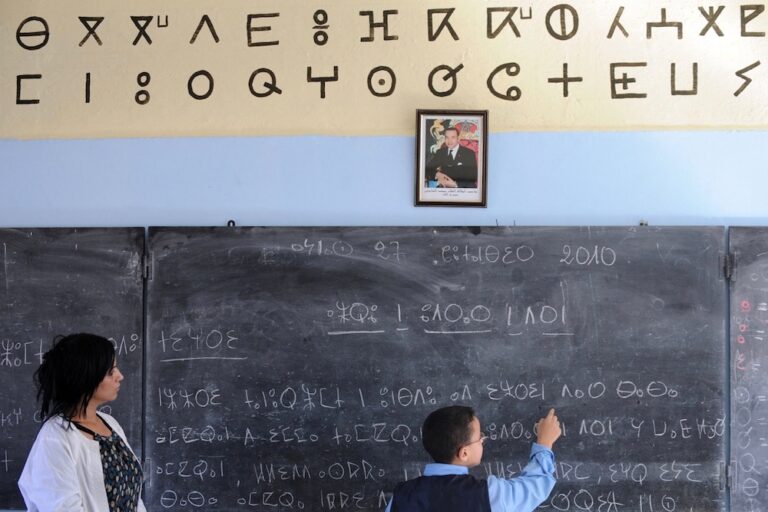Progress has been followed by reverses, RSF says on the eve of the 10th anniversary of King Mohammed's accession to the throne.
(RSF/IFEX) – Real progress at the start of King Mohammed’s reign has been followed by reverses and tension, especially from 2002 onwards, Reporters Without Borders said in an evaluation of the state of press freedom in Morocco on the eve of the 10th anniversary of Mohammed VI’s accession to the throne on 23 July 1999.
The priority continues to be a thorough overhaul of the press code, which is much too severe, the press freedom organisation stressed. In the past 10 years, Moroccan journalists have been sentenced to a total of 25 years in prison and news media have been fined a total of 2 million euros.
Moroccan journalists are undeniably freer to work now than they were 10 years ago and fewer subjects, if any, are still taboo thanks to the independent press’s tenacity and King Mohammed’s desire to ease restrictions. Despite the risk of lawsuits, journalists can tackle stories that were completely off-limits 10 years ago such as the monarchy, the government, Islam, sexuality and Western Sahara.
Reporters Without Borders also hails the fact that no journalists are currently in prison for press offences even if there are many prisoners of conscience.
The number of daily and weekly newspapers has grown dramatically since 1999 and several new radio and TV stations were given licenses when state control of broadcasting began to be relaxed in May 2006, offering Moroccans some diversity in this sector for the first time. Despite the impartiality of the High Council for Broadcasting, there was widespread disappointment that no new TV stations and only four new radio stations (either regional or specialist ones) were awarded licences in a second wave in February of 2009. There had been 23 applicants.
Although Morocco now tolerates more media criticism and more editorial freedom, the palace still does not accept that the media have an important role to play. It allows some leeway to print media journalists because only 1 per cent of the population buys newspapers and magazines. And only a few newspapers such as “Tel Quel” and “Le Journal Hebdomadaire” are really independent.
The media still has to face obstacles, archaic laws and arbitrary reactions. Policemen often assault reporters and photographers and confiscate their equipment. Twenty policemen raided the Arabic-language weekly “Al Ayam” on 10 February simply because it had in its possession a photo of a member of the royal family which it had requested permission to publish.
(. . .)


